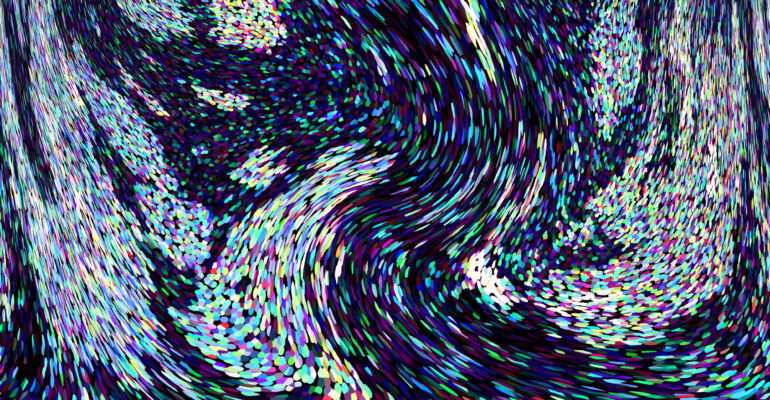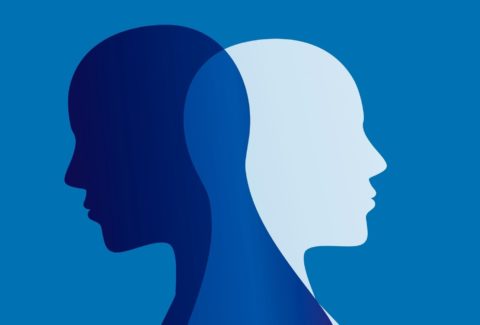Friedrich Nietzsche and Existential Therapy: Embracing Life’s Challenges and Overcoming Limits

Friedrich Nietzsche and Existential Therapy: Embracing Life’s Challenges and Overcoming Limits
Friedrich Nietzsche[1], one of the most profound and provocative philosophers of the 19th century, remains an enduring influence on existentialism and psychotherapy. Known for his radical ideas, such as the “will to power,” the concept of the “Übermensch[2]” (Overman or Superman), and his declaration that “God is dead[3],” Nietzsche’s work challenges individuals to rethink their relationship to society, morality, and themselves. His philosophy, though often controversial, has shaped Existential Therapy by encouraging individuals to confront life’s inherent struggles, embrace suffering as a catalyst for growth, and transcend societal constraints to create their own meaning and values.
Nietzsche’s Core Concepts: Overcoming, Will to Power, and Eternal Recurrence
To understand the profound impact Nietzsche has on Existential Therapy, it is essential to explore some of his central philosophical concepts.
The Will to Power: Creating One’s Own Path
One of Nietzsche’s most crucial ideas is the concept of the will to power[4], which represents a fundamental force driving individuals to grow, evolve, and assert their influence in the world. Unlike traditional notions of power, which focus on dominance over others, Nietzsche’s will to power is about self-mastery, personal growth, and the creative force behind an individual’s life choices. It is the ability to overcome adversity and transform suffering into strength.
In Existential Therapy, the will to power is closely aligned with the idea of self-determination and personal responsibility. Just as Nietzsche advocated for creating one’s values and meaning in life, Existential Therapy[5] encourages individuals to claim ownership of their lives, to confront their fears and limitations, and to embrace the freedom that comes with being fully responsible for one’s choices. The will to power is not about controlling others but about mastering oneself, transcending one’s limitations, and living authentically.
The Übermensch: Transcending Conventional Morality
Nietzsche’s idea of the Übermensch challenges the conventional moral systems that bind individuals.[6] The Übermensch is a person who creates their own values and lives in accordance with their inner will, unshackled by societal norms, religious constraints, or conventional morality. The Übermensch is not a flawless being but one who continuously strives for self-overcoming, pushing beyond personal and societal boundaries to reach their fullest potential.
In Existential Therapy, this concept resonates with the idea of self-actualization: the continual process of becoming one’s truest, most authentic self. The therapist’s role is to help individuals break free from societal expectations, past traumas, or self-imposed limitations and to embrace their power to shape their own destiny. Just as the Übermensch[7] does not accept preordained values, individuals in therapy are encouraged to question inherited beliefs and to construct a life that reflects their true desires, not those imposed by external forces.
Eternal Recurrence: Embracing Life’s Cycles
Nietzsche’s notion of eternal recurrence is perhaps one of his most challenging ideas. It posits that if one were to live their life over and over, every moment repeating infinitely, how would they choose to live? Nietzsche proposed this thought experiment to test the individual’s commitment to their life[8], urging them to live in a way that they could joyfully embrace its repetition. It asks, “Would you choose to live your life exactly as it is, knowing it will never end?”
In Existential Therapy, this concept invites individuals to confront the possibility that their life, as it currently stands, may not align with their truest desires or potential. The therapist encourages individuals to reflect on whether they are truly living in a way that is authentic, purposeful, and fulfilling. Would they choose to live their current life over and over again? If not, Existential Therapy helps individuals identify the obstacles preventing them from living more fully and find ways to overcome them.[9]
Nietzsche’s Influence on Existential Therapy: Embracing Suffering, Responsibility, and Meaning
Nietzsche’s philosophy has had a profound impact on Existential Therapy, particularly in its approach to suffering, personal responsibility, and meaning-making. His emphasis on overcoming obstacles, embracing life’s challenges, and transcending conventional moralities resonates deeply with the therapeutic process.
Embracing Suffering: The Path to Strength
Nietzsche’s famous assertion that “what does not kill us makes us stronger” reflects his view of suffering as an inevitable, though transformative, part of the human experience. Rather than avoiding pain or seeking comfort, Nietzsche encourages individuals to engage with their suffering and use it as a tool for growth. Through adversity, individuals can develop resilience, deeper self-awareness, and a greater sense of purpose.[10]
Existential Therapy draws on this idea, helping clients see suffering as an opportunity for self-discovery and transformation. The therapist guides individuals in understanding that, while pain is unavoidable, it is not futile. Suffering can lead to personal empowerment, as individuals are given the opportunity to reframe their experiences, find meaning in hardship, and grow stronger as a result.
The Burden of Freedom: Personal Responsibility and Authenticity
Central to both Nietzsche’s philosophy and Existential Therapy is the concept of personal responsibility. Nietzsche rejects the notion of a predetermined or externally dictated life, and instead advocates for individuals to create their own values and meaning.[11] This requires taking full responsibility for one’s actions and decisions, without relying on external authorities or societal rules to define one’s path.
Existential Therapy builds on this by helping individuals confront the reality of their freedom and the responsibility that comes with it. The therapist works with clients to explore the ways in which they may be avoiding responsibility or living inauthentically. Through this process, individuals are encouraged to confront their anxieties, fears, and self-imposed limitations, ultimately leading to greater autonomy and a life that is more in line with their true desires.
The Search for Meaning: Creating One’s Own Values
Nietzsche’s declaration that “God is dead” is often misunderstood as a nihilistic statement, but in reality, it is a call to create meaning in a world that no longer provides it.[12] Without the framework of traditional religion or morality, Nietzsche urges individuals to become the creators of their own values. This idea of “becoming who you are” is central to Existential Therapy, which posits that individuals are responsible for creating meaning in their own lives.
In therapy, clients are encouraged to explore their values, beliefs, and goals, and to reject external impositions that do not reflect their authentic selves. By helping individuals discover and create their own purpose, existential therapists guide clients in crafting a life that is uniquely their own, unbound by the limitations of tradition, culture, or expectations.
Nietzsche’s Legacy in Existential Therapy: Living with Courage, Freedom, and Power
Friedrich Nietzsche’s influence on Existential Therapy is profound, as his philosophy offers both a challenge and an invitation to live more fully, authentically, and powerfully. His ideas about the will to power, the Übermensch, and eternal recurrence provide a framework for understanding human growth, responsibility, and the creation of meaning. Existential Therapy, influenced by Nietzsche, helps individuals confront the harsh realities of life and embrace their capacity for self-overcoming.[13]
Nietzsche’s radical ideas, once considered controversial, have found a home in modern psychotherapy as they encourage individuals to move beyond societal norms and external expectations, instead forging their own paths in life. Through this process, individuals are empowered to face their suffering, take responsibility for their freedom, and ultimately create a life that is meaningful and filled with purpose.
In conclusion, Friedrich Nietzsche’s philosophy is not merely an abstract intellectual exercise but a practical and powerful guide for those seeking to live authentically and embrace their full potential. Existential Therapy, shaped by Nietzsche’s insights, offers a path to personal transformation by encouraging individuals to confront their suffering, exercise their freedom, and create their own values. By embracing Nietzsche’s vision of self-overcoming, individuals can transcend their limitations and create a life that is truly their own.
Would you like to help your patients and clients find freedom, authenticity, and meaning in life? If so, join us for our 8-week Existential Psychotherapy Certificate Course, held virtually starting on February 26, 2025. Click HERE to register.
[1] Bataille, Georges. On nietzsche. Suny Press, 2015.
[2] Bernd, Magnus. “Nietzsche’s Philosophy in 1888: The Will to Power and the Übermensch 1.” Nietzsche. Routledge, 2018. 99-118.
[3] Nietzsche, Friedrich. God Is Dead. God Remains Dead. And We Have Killed Him. Penguin UK, 2020.
[4] Du Plessis, Guy. “Will to Power: The Utility of Nietzsche’s Philosophy for Philosophical Counseling.” (2024).
[5] Aydin, Ciano. “Nietzsche on reality as will to power: Toward an” organization—struggle” model.” Journal of Nietzsche Studies (2007): 25-48.
[6] Cybulska, Eva. “Nietzsche’s Übermensch: A hero of our time.” Philosophy Now 93 (2012): 10-12.
[7] Loeb, Paul S. “Finding the Übermensch in Nietzsche’s Genealogy of Morality.” The Journal of Nietzsche Studies 30 (2005): 70-101.
[8] Richardson, John. “Nietzsche on Time and Becoming.” A Companion to Nietzsche (2006): 208-229.
[9] Belliotti, Raymond Angelo. “Nietzsche and the meaning of life.” The Meaning of Life and the Great Philosophers. Routledge, 2018. 182-190.
[10] Shaver, Robert. “Nietzsche on suffering and morality.” The Philosophical Forum. Vol. 55. No. 3. 2024.
[11] Golomb, Jacob. “Nietzsche on authenticity.” Philosophy Today 34.3 (1990): 243.
[12] Brandão, Hugo, and Esp Rafaella Caminha. “God is dead? A philosophical analysis.”
[13] Guay, Robert. “Nietzsche on Freedom.” European Journal of Philosophy 10.3 (2002).






